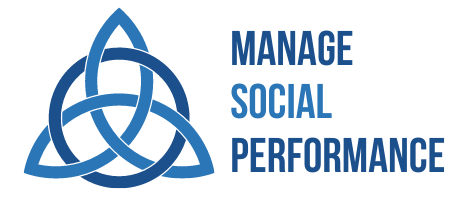When it comes to enterprise development, I wouldn’t recommend basing credit decisions on indoor toilets or gifts from relatives living abroad. That’s why a recent article on creditworthiness indicators and how lenders use data from informal channels and online social media for credit decisions led me to consider the implications of such practices in rural enterprise development.
Real enterprise development isn’t theoretical. It requires a hands-on, boots-on-the ground approach.
 The proliferation of social media is a data-miner’s dream come true. It’s no surprise that some lenders use information culled from people’s online data to make credit decisions. I suppose that means we should beware of who we “friend” on Facebook and LinkedIn, or even what apps we download to our smartphones; I bet there are even profiles available of Angry Birds players.
The proliferation of social media is a data-miner’s dream come true. It’s no surprise that some lenders use information culled from people’s online data to make credit decisions. I suppose that means we should beware of who we “friend” on Facebook and LinkedIn, or even what apps we download to our smartphones; I bet there are even profiles available of Angry Birds players.
The article that crossed my desk mentioned that one lender in Africa makes credit decisions based on home visits and neighbor interviews because a person who receives money from relatives abroad or who has an indoor toilet is seen as a better credit risk. Now making loans is an important part of the picture. But it seems to me that the combined practice of mining data and using indicators such as indoor toilets and gifts gives further privileges to those with privilege, instead of creating opportunity. Experience shows that enterprise development and micro-enterprise financing are quite different from traditional loans – they are about creating opportunity, not just about making loans.
Talking about enterprise development and micro-enterprise financing really means talking about building capacity, which is at best a medium-term endeavor. And while the person with the indoor toilet who receives remittances from a family member abroad may be a better credit risk, that person does not necessarily have an entrepreneurial spirit and the gumption to start and maintain a small business.
 Building that entrepreneurial capacity means visiting people, talking to whole communities, developing plans, providing individual training and then sustaining the monitoring and support. The level and intensity of these components will vary with the situation. It’s not a short-term profit-making venture, but it does create value, if not excess financial capital. The key is to look at overall value – particularly when using enterprise development as a social management tool.
Building that entrepreneurial capacity means visiting people, talking to whole communities, developing plans, providing individual training and then sustaining the monitoring and support. The level and intensity of these components will vary with the situation. It’s not a short-term profit-making venture, but it does create value, if not excess financial capital. The key is to look at overall value – particularly when using enterprise development as a social management tool.
Lending plays an important role in supporting enterprise development. Loans, which are often made in-kind, can be repaid at a rate equal only to the inflation rate in order to recover initial funds (which are again loaned out). Borrowers pay for the service rendered at a previously negotiated “price,” which can be paid in-kind, in time or in other creative ways that are agreeable to the parties involved. Mentoring others or holding ‘discussion circles’ around specific topics are potential “payments” borrowers can offer once they gain a certain level of proficiency in managing their businesses.
Among the values enterprise development creates is having local money remain local, which boosts the local economy. Non-financial value returns include new opportunities, success stories that build local pride, new capacities and new skills. What value accrues to the lender? It can be enormous for natural resource companies that engage in enterprise development as part of their overall social investment strategy, particularly in terms of avoiding social risks as well as leaving local communities better off for the company’s presence.
Building local capacity – creating new enterprises – to supply products and services your operation will need and that can also be offered in other markets multiplies the positive impact on local communities and results in fewer benefits-distribution issues down the road. It requires commitment, a hands-on approach and a long-term vision, but it is an effective way to generate sustainable economic development at the local level.
Getting back to that article and the variety of information that can be gathered via social media and electronic sources: if anyone knows of studies that show how the data relates to an entrepreneurial attitude, strength of character, and general stick-to-it-iveness, please send them my way. Until then, the hands-on, personal approach is the key to creating value through enterprise development.

Recent Comments